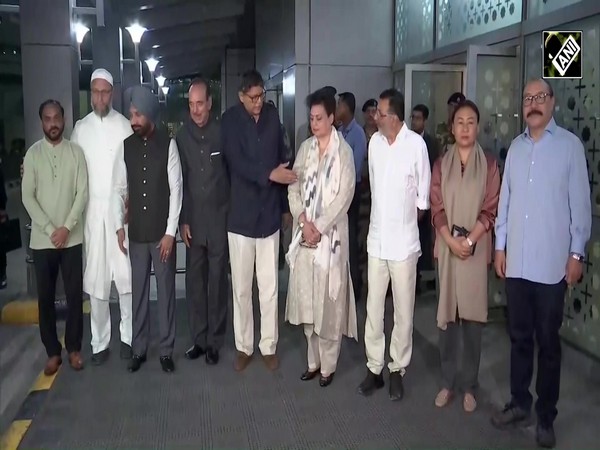
"Uttarakhand UCC portal gets over 1.5 lakh applications in four months": CM Dhami
May 25, 2025
Dehradun (Uttarakhand) [India], May 25 : Uttarakhand Chief Minister Pushkar Singh Dhami on Sunday said that the state has received over 1.5 lakh applications through the Uniform Civil Code (UCC) portal since its implementation on January 27, 2025.
"More than 1.5 lakh applications have been received from across the state in just four months from nearly 98 per cent of villages, indicating widespread public support for the UCC," said CM Dhami.
The Chief Minister said that a robust system has been developed to implement the UCC. To make the process more accessible and user-friendly for the general public, a dedicated portal and mobile app have been developed.
Additionally, the Chief Minister said that more than 14,000 Common Service Centres (CSCs) at the village level have been integrated with the system.
The Chief Minister shared that to address issues arising during registration, auto-escalation and grievance redressal systems have been put in place.
Chief Minister Dhami also expressed gratitude to Prime Minister Narendra Modi and Union Home Minister Amit Shah for their guidance and support in successfully implementing the UCC.
He said that under the leadership and vision of the Prime Minister, a promise was made in the 2022 Assembly election manifesto that the UCC would be implemented in Uttarakhand if given a mandate.
After securing victory, work on implementing the UCC began on day one. A draft of the UCC bill was prepared after the formation of a committee on 27 May 2022, chaired by Justice Ranjana Desai.
The committee conducted extensive public consultations in all 13 districts of Uttarakhand, receiving around 2.32 lakh suggestions. It consulted not only the general public but also leaders of all political parties and heads of various statutory commissions.
The state government passed the Uniform Civil Code Bill in the Assembly on 7 February 2024 and forwarded it to President Droupadi Murmu, after which the President gave her assent on 11 March 2024.'
After completing the required rules and procedures, the UCC was formally implemented across Uttarakhand on 27 January 2025. Thus, Uttarakhand became the first state in India to practically implement the spirit of Article 44 of the Constitution through the Uniform Civil Code.
Providing more details, the Chief Minister stated that the UCC is a constitutional measure to eliminate legal discrimination based on caste, religion, gender, etc.
It aims to ensure equal rights for all citizens. With its implementation, true women's empowerment in the state will be ensured. The UCC completely prohibits regressive practices such as halala, iddat, polygamy, child marriage, and triple talaq.
Scheduled Tribes, as defined under Article 342 of the Constitution, have been excluded from the scope of the UCC to protect their customs and traditions.
The Uniform Civil Code is not against any religion or sect; rather, it is a legal step to eradicate social evils and establish harmony through equality among all citizens. This vision was also envisaged by our Constitution-makers and included among the Directive Principles of State Policy.
The UCC does not alter the core beliefs or practices of any religion; it only removes regressive customs. Under the UCC, a uniform legal process has been established for all religions in matters such as marriage, divorce, and inheritance. From now on, couples will be required to follow the judicial procedure for divorce, and polygamy has been completely banned.
Under these laws, daughters have been given equal inheritance rights across all religions and communities. There is also no discrimination among children in matters of inheritance, whether they are born of natural relationships, assisted reproductive methods, or live-in relationships--they will have equal rights.
Parents have also been granted rights in the property of their children, ensuring economic security and dignified living for the elderly.
Considering the current situation, to ensure the safety of the younger generation, particularly young men and women, and to protect them from potential social complications and crimes, registration of live-in relationships has been made mandatory.
The registrar will inform the parents or guardians of the couple registering, and this information will be kept completely confidential.
Like the registration of births and deaths, registration of marriages and divorces will also be facilitated under the UCC.
Along with the implementation of the Uniform Civil Code, a clear and effective set of rules for its enforcement has also been brought into effect.























